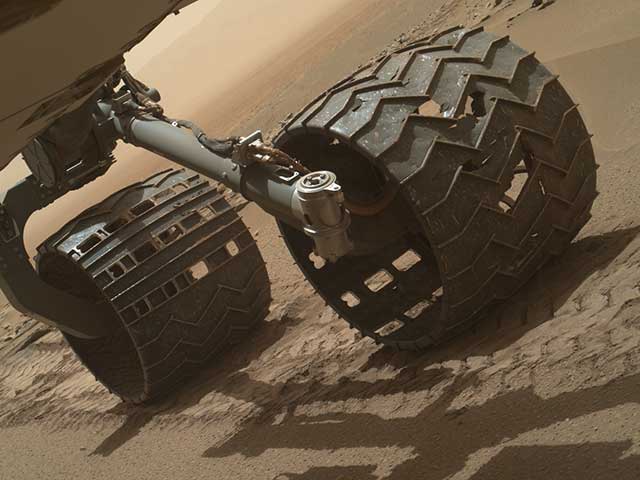
Spacebit, a startup based in London, is developing special lunar rovers equipped with artificial intelligence to explore the Moon. But instead of wheels like in traditional rovers, the company equipped its machines with legs. The company is the latest private firm to express interest in exploring the Moon. According to Spacebit, it aims to make its debut in space through its cube-shaped lunar robots that are equipped with four legs. Spacebit unveiled the details of the project during the recent International Astronautical Congress held in Washington.
According to Pavlo Tanasyuk, the company's CEO, each of the spider-like robots, which Spacebit refers to as Moon crawlers, costs about $3 million each and weighs around a kilogram. Tanasyuk noted that the company decided to equip the Moon crawlers with legs instead of wheels in order to allow them to maneuver across uneven surfaces on the Moon more easily than traditional rovers. "We don't have wheels – we have four legs instead of the wheels – which is a very neat design," he said during the conference.

Spacebit plans to deploy a total of eight Moon crawlers to the lunar surface. These robots will be ferried to a designated area on the Moon by a larger rover. Using the Moon crawlers' artificial intelligence, the robots will then proceed to explore various areas on the Moon including hard-to-reach places such as caves and crevices.
The Moon crawlers will be launched off of Earth as a payload aboard the Peregrine lunar lander, which was developed by the U.K.-based firm Astrobotics. To reach the Moon, the Peregrine will be placed aboard the Vulcan Centaur rocket, which is expected to launch sometime in July 2021. For Tanasyuk, the upcoming launch will be regarded as a historical event because it will be the first time that a payload from the U.K. will be deployed on the Moon.
"We could not be more excited to fly this mission with Astrobotic," Tanasyuk said in a statement. "This mission will result in the first payload from the UK to reach the Moon surface and mark the beginning of a new era in commercial space exploration for Britain."









